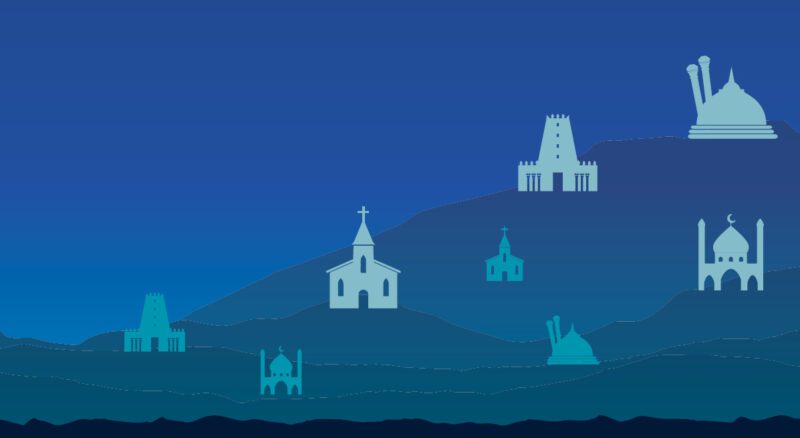Read the Report
Sri Lanka’s diverse social fabric is made up of different ethnic, religious, linguistic, and cultural groups. There is a very clear distinction between different ethnic groups; Buddhism is the religion practiced by a majority of the country’s Sinhala population, a larger portion of Tamils is Hindu, and Muslims are adherents of Islam. Christianity is followed by both Sinhala and Tamil people. While religion is closely tied to the ethnicity, ethno-religious identity is somewhat fluid between Sinhala and Tamil communities since some people from both these communities share a common religion. Although religion had always played a crucial part in the country’s post-independent identity politics, religion itself was never deemed as a direct cause for the armed conflict.
This handbook, produced by Internews’ NORAD supported project — Building a Culture of Respect for Religious and Ethnic Diversity in Sri Lanka and Myanmar — takes a look at aspects of religious pluralism in Sri Lanka, including Constitutional and Institutional safeguards, context of riots and tensions, and civil society efforts to promote pluralism.
The resource is also available in Sinhala and Tamil languages. Printed copies will be placed in several other key organizations including the Human Rights Commission and National Library of Sri Lanka.
